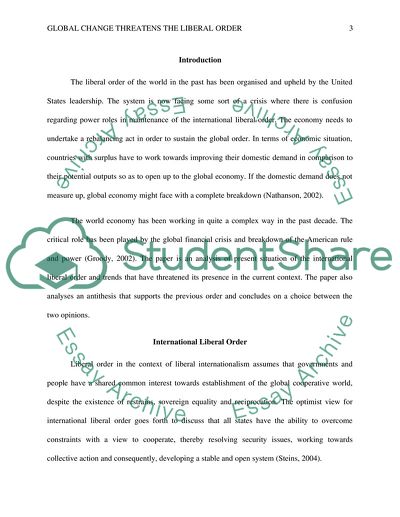Cite this document
(“Global Change threatens the liberal order Assignment”, n.d.)
Global Change threatens the liberal order Assignment. Retrieved from https://studentshare.org/macro-microeconomics/1647136-global-change-threatens-the-liberal-order
Global Change threatens the liberal order Assignment. Retrieved from https://studentshare.org/macro-microeconomics/1647136-global-change-threatens-the-liberal-order
(Global Change Threatens the Liberal Order Assignment)
Global Change Threatens the Liberal Order Assignment. https://studentshare.org/macro-microeconomics/1647136-global-change-threatens-the-liberal-order.
Global Change Threatens the Liberal Order Assignment. https://studentshare.org/macro-microeconomics/1647136-global-change-threatens-the-liberal-order.
“Global Change Threatens the Liberal Order Assignment”, n.d. https://studentshare.org/macro-microeconomics/1647136-global-change-threatens-the-liberal-order.


